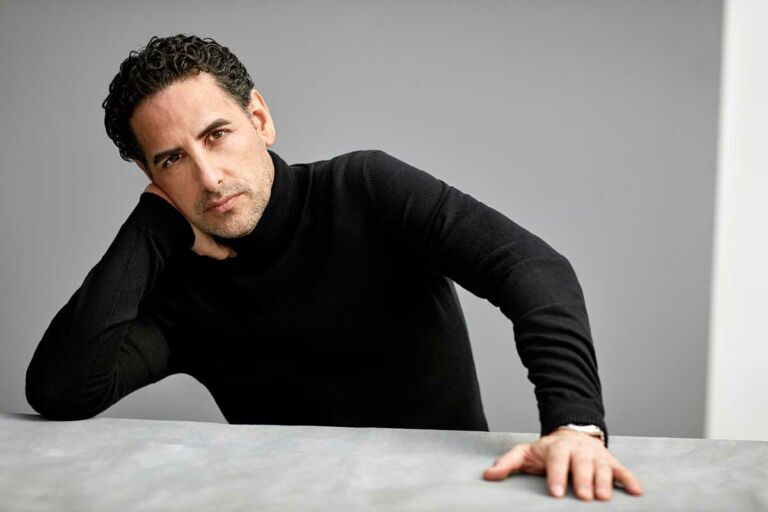Adapted many times, most famously on screen by Alfred Hitchcock, Daphne du Maurier’s 1938 Gothic novel Rebecca becomes a visually striking psychodrama in this new MTC production.
The company’s Artistic Director Anne-Louise Sarks directs and adapts, and has gathered some of MTC’s finest frequent collaborators including Tony and Olivier award-winning designer Marg Horwell, lighting designer Paul Jackson and leading lady Nikki Shiels.

Rebecca: Nikki Shiels and Pamela Rabe. Photo © Pia Johnson
Sarks is fairly faithful to the novel, including the interwar setting most evident in Shiels’ perfectly clipped English accent. She plays an unnamed, naive young woman, who is paid companion to Mrs Van Hopper before a whirlwind courtship sees her married to recently widowed Maxim de Winter.
At his grand seaside estate, Manderley, she’s troubled by constant comparisons to and reminders of the first Mrs de Winter, Rebecca, who reportedly drowned. She is undermined by housekeeper Mrs Danvers, who remains devoted to her former mistress, and concludes the emotionally distant Maxim is too.
Eventually the true nature of the seemingly perfect Rebecca and the circumstances of her death are revealed. A...
Continue reading
Get unlimited digital access from $4 per month
Already a subscriber?
Log in










Comments
Log in to start the conversation.